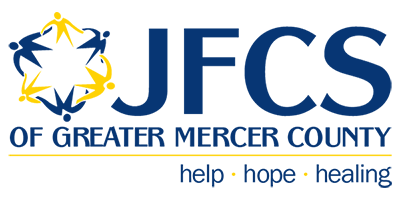I went to a funeral last month for a 98 year-old mainstay of my synagogue who died of COVID. The immediate family, rabbi and cantor stood at graveside. I sat in my car, parked on the perimeter of the burial site, along with people in at least 25 other cars. We could not hear what was being said but we could say our own prayers and access our own memories. My husband played the Jewish memorial prayer—El Molei Rahamim—on his phone, and it set the appropriate somber tone. We reminisced about the deceased and said how pleased we were to see so many present under these very strange circumstances.
At the end of the service, we were allowed to go up to the grave, one at a time, to place shovels-full of dirt on the casket in accordance with tradition—if we wanted to do so. We were masked, standing 6 feet apart. We acknowledged each other with nods but did not speak. We hoped that the family would gain strength from our show of support. We gained strength from being together in this new, strange way because we shared our love, respect, and sense of rightness in being in the cemetery together. Over the weekend, the synagogue held a Zoom memorial service that was attended by at least 100 people where stories were told and reminiscences shared.
This is grieving in the time of COVID.

We are already grieving the loss of a normal life. The loss of a loved one hits us even harder because the normal rituals of grieving are not available. As illustrated above, these difficult times call forth creativity and a search for new ways to come together to show respect, to grieve, and to share memories.
In these unusual and unprecedented times, I will share some of the wisdom I have gained as a chaplain leading bereavement groups for more than a decade and as a human being living with the grief of many in this time of COVID. While my focus is on those who are grieving, I hope relatives and friends of the bereaved may also gain insight.
FEEL YOUR FEELINGS & BE KIND TO YOURSELF: Remember that there is no time limit on grief. Mourning the loss of a loved one is forever, but it also changes with time. There is no “right way” to grieve or “right timeline” for grief. Grieving does not happen in a straight line, it is experienced as waves that come and go.
In these surreal times of social isolation, it may be harder to accept the reality of the death of a loved one—that is normal. It also may not be possible to take time out for the mourning you want to do at this time, there are young children at home, or a job that demands all your energy and attention (this is particularly true for all front line responders, though everyone going out into the COVID world is living in a time of incredible stress), or you must attend to your own health or that of others. Do what you have to do and do not be afraid that you are not grieving “properly.
HONOR THE MEMORY OF YOUR LOVED ONE: There are many ways to find the comfort that usually come from traditional funeral practices (shiva, viewings, etc.). Use Facetime, Skype and Zoom to connect with loved ones singly or in groups. Create memorials or electronic collages on Facebook or other platforms, these can continue indefinitely into the future. Plan a memorial for your loved one for the time when it will be possible to be together again. Pick up the telephone to call each other. Send emails with pictures and stories. You don’t have to be technologically advanced to make the connections—just do whatever you can. A friend’s father died this past week of COVID. I did not know his father well but I would have attended the funeral, instead, I asked my friend if he would tell me stories about his father on the telephone. He eagerly agreed. I plan to continue our phone conversations over the coming weeks and months.
CURRENT GRIEF BRINGS UP PAST GRIEF, REMEMBER YOUR PAST STRENGTHS: It is also normal to revisit many past losses while experiencing a fresh grief. This can be very painful, but it also can give you an opportunity to remember how you dealt with grief in the past—what helped you get through the unimaginable. One of my cousins is having flashbacks to her father’s death many years ago, she is using her COVID social isolation time to reach out to family members, share stories, and document family connections. The pain of loss is very fresh to her, but she also is finding new coping mechanisms that give her love and support.
STAY IN TOUCH: For the mourner, it may be hard to reach out and even harder to know what is wanted or needed. Friends and relatives may need to be more proactive than usual in making calls, sending cards, bringing or sending food, or offering any kind of comfort that is possible. It’s important to take action without being asked. This is another opportunity for creativity
SEEK PROFESSIONAL SUPPORT IF YOU ARE STRUGGLING: Connect one-on-one with a JFCS counselor for individualized support and tips during “Drop-In” Hours, Mondays, Wednesdays and Fridays 10AM-12PM, Tuesday and Thursday 5 PM-7 PM. Call JFCS at 609-987-8100 and dial 0.
Beverly Rubman, Chaplain & Support Group Facilitator


